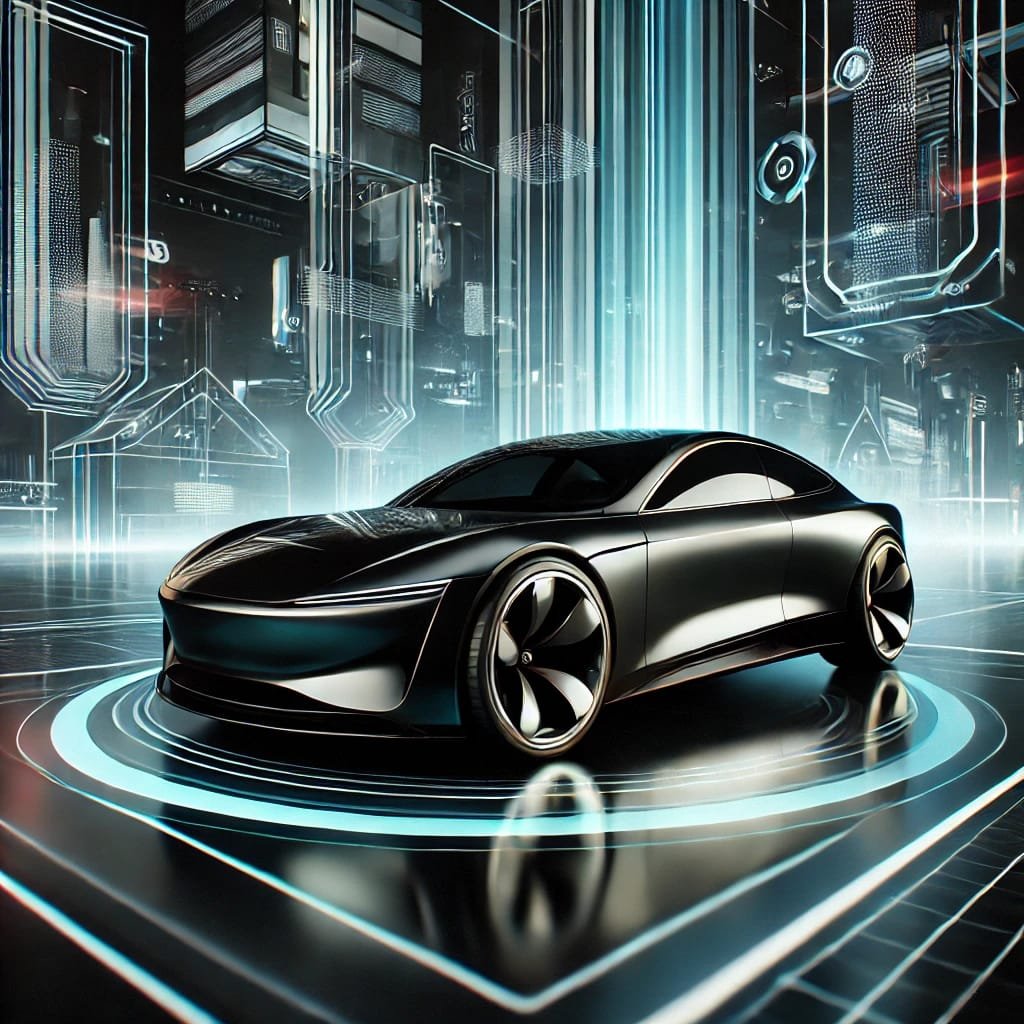
Introduction
The way people own and use cars is changing rapidly. Traditional car ownership, where you buy a car and keep it for several years, is no longer the only option available. With advances in technology and shifts in consumer preferences, new car ownership models are emerging. These models are reshaping the automotive industry and providing consumers with more flexible and cost-effective ways to access personal transportation. In this article, we will explore these new car ownership models, including car-sharing, subscription services, leasing, and the role of electric and autonomous vehicles in shaping the future of car ownership.
Traditional Car Ownership: A Brief Overview
Traditional car ownership involves purchasing a vehicle, either with cash or through financing options like loans. This model has been the norm for decades, offering individuals the freedom and convenience of owning their own cars. However, owning a car comes with significant responsibilities, such as maintenance, insurance, and depreciation costs. For many, the idea of tying up a large sum of money in a depreciating asset is becoming less attractive.
The Rise of Alternative Car Ownership Models
Several alternative car ownership models have gained popularity in recent years, offering more flexible and economical options to consumers. These new models include car-sharing, subscription services, and leasing.
- Car-Sharing
Car-sharing services, like Zipcar and Car2Go, allow users to rent cars on an hourly or daily basis. This model is particularly appealing to those who need a vehicle only occasionally and prefer not to bear the costs associated with traditional car ownership. Car-sharing is especially popular in urban areas where public transportation is readily available, and the cost of owning a car, including parking fees, is high.
Car-sharing offers several benefits, including lower costs and reduced environmental impact. By sharing a vehicle with others, users contribute to fewer cars on the road, which can help reduce traffic congestion and pollution. Additionally, car-sharing platforms typically provide a variety of vehicle types, allowing users to choose a car that fits their specific needs for each trip.
- Subscription Services
Car subscription services offer another alternative to traditional car ownership. Companies like Care by Volvo, Porsche Passport, and Book by Cadillac provide customers with the option to subscribe to a car for a monthly fee. These services often include insurance, maintenance, and roadside assistance, allowing for a hassle-free experience.
Subscriptions offer flexibility, as users can switch between different vehicles based on their needs or preferences. This model is ideal for individuals who like trying out different cars or who require different types of vehicles for various purposes, such as a compact car for daily commutes and an SUV for weekend trips.
- Leasing
Leasing a car is not a new concept, but it has become increasingly popular as a flexible alternative to buying. A lease is essentially a long-term rental agreement that typically lasts two to four years. During the lease period, the lessee pays a monthly fee to use the car, but they do not own it. At the end of the lease, they can either return the car, purchase it at a pre-determined price, or lease a new vehicle.
Leasing offers several advantages, such as lower monthly payments compared to financing a car purchase, and the ability to drive a new car every few years. It also eliminates concerns about the car’s depreciation, as the lessee does not own the vehicle. However, leasing also comes with mileage restrictions and potential charges for excess wear and tear, which might not suit everyone.
The Role of Electric and Autonomous Vehicles
Electric and autonomous vehicles are playing a significant role in reshaping car ownership models. These technologies are driving changes in how people perceive and use cars.
- Electric Vehicles (EVs)
Electric vehicles (EVs) are becoming more common as concerns about climate change and air pollution grow. Governments worldwide are encouraging the adoption of EVs through incentives and subsidies, and car manufacturers are investing heavily in developing new electric models. As the market for EVs expands, new ownership models like car-sharing and subscription services are becoming more viable and appealing.
For example, some car-sharing services now offer fleets consisting entirely of electric vehicles, providing users with an eco-friendly transportation option without the need to buy an EV. Subscription services are also incorporating electric vehicles into their offerings, allowing customers to experience the benefits of EVs without committing to a purchase.
- Autonomous Vehicles (AVs)
Autonomous vehicles, or self-driving cars, are poised to revolutionize the way we think about car ownership. While fully autonomous cars are not yet widely available, advancements in technology suggest they will become a reality in the near future. Autonomous vehicles could dramatically reduce the need for individual car ownership by making ride-hailing and car-sharing services more efficient and affordable.
Imagine a world where you can summon a self-driving car with a few taps on your smartphone. The car arrives at your location, takes you to your destination, and then drives off to pick up the next passenger. In this scenario, the concept of owning a car becomes less relevant, as autonomous vehicles can provide convenient, on-demand transportation at a lower cost.
The Shift Towards a Mobility-as-a-Service (MaaS) Model
The future of car ownership is closely tied to the concept of Mobility-as-a-Service (MaaS). MaaS is a new way of thinking about transportation that focuses on providing seamless, integrated mobility solutions to consumers. Instead of owning a car, individuals can access various transportation options — such as public transit, car-sharing, ride-hailing, and bike-sharing — through a single platform or app.
The MaaS model emphasizes convenience, cost-efficiency, and sustainability. It allows users to plan, book, and pay for different modes of transportation from one app, providing a comprehensive solution for their mobility needs. This shift towards MaaS is already taking place in cities worldwide, with several MaaS platforms being developed to provide users with flexible transportation options.
The Impact of Digital Technology on Car Ownership
Digital technology plays a crucial role in enabling new car ownership models. Mobile apps, data analytics, and connectivity are transforming the way people access and use cars. For example:
- Mobile Apps: Car-sharing, subscription services, and ride-hailing companies rely heavily on mobile apps to provide their services. These apps allow users to locate, reserve, and unlock vehicles, as well as manage their accounts and payments.
- Data Analytics: Data analytics helps companies optimize their fleets, predict demand, and improve user experiences. By analyzing data on user behavior, traffic patterns, and vehicle performance, companies can offer more efficient and reliable services.
- Connectivity: Connected cars equipped with advanced sensors and communication technologies can interact with each other and the surrounding infrastructure. This connectivity enables features like remote diagnostics, over-the-air software updates, and real-time traffic information, enhancing the overall driving experience.
Challenges and Barriers to New Car Ownership Models
While new car ownership models offer many benefits, several challenges and barriers need to be addressed for their widespread adoption.
- Consumer Trust and Acceptance
For many people, owning a car is a symbol of independence and status. Changing this mindset will take time, especially in regions where car ownership is deeply ingrained in the culture. Companies offering alternative car ownership models must build trust and educate consumers about the benefits of these new approaches.
- Regulatory and Legal Issues
Regulatory and legal frameworks must evolve to support new car ownership models. For instance, ride-sharing and car-sharing services often face opposition from traditional taxi companies and local authorities. Additionally, regulations surrounding insurance, liability, and data privacy need to be clarified to protect both service providers and consumers.
- Infrastructure Development
The success of new car ownership models depends on the availability of adequate infrastructure. For example, electric vehicle adoption requires a robust network of charging stations. Similarly, autonomous vehicles will need smart roads and communication systems to operate safely and efficiently.
The Future Outlook: What to Expect
The future of car ownership is likely to be more diverse and flexible, with various options catering to different needs and preferences. We can expect to see continued growth in car-sharing, subscription services, and other alternative models, driven by advancements in technology and changing consumer attitudes.
As electric and autonomous vehicles become more mainstream, they will play a central role in reshaping car ownership. Electric vehicles will become more accessible through subscription services and car-sharing platforms, while autonomous vehicles will make personal car ownership less necessary by offering convenient and affordable on-demand transportation.
Conclusion
The future of car ownership is evolving, moving away from traditional models towards more flexible and sustainable options. As technology continues to advance, and consumer preferences shift, we can expect to see a wider range of ownership models that provide greater choice and convenience. Whether through car-sharing, subscription services, or Mobility-as-a-Service platforms, the way we access and use cars is set to change dramatically in the coming years. The automotive industry will need to adapt to these changes, embracing new technologies and business models to meet the demands of the future.
By embracing these new car ownership models, consumers can enjoy the benefits of personal transportation without the burdens and costs associated with traditional car ownership, paving the way for a more sustainable and efficient future.





